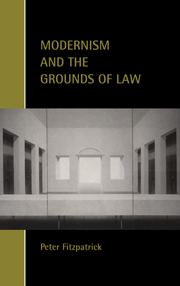6 - Globalism
Published online by Cambridge University Press: 05 July 2014
Summary
How much can come
And much can go,
And yet abide the world!
(Dickinson 1999: 591)ENDINGS
There are aptly persistent academic conversations which would have it that all our doings have been done and that globalization specifically is not to do with a new-created world but, rather, with a continuing imperialism writ somewhat large, even if now an ‘imperialism without colonies’ (cf. Magdoff 1972). This last chapter recasts that assessment in a way which accommodates globalization as a ‘globalized nationalism’ (Douzinas 2000: 212). In so doing, the chapter follows a muted trajectory in globalization theory itself. Such theory, in blunt outline, would distinguish itself from plain universalism because it emphasizes the ‘local’ in a way which does not reduce it to being an instance of the global but, rather, accords it some distinctness (Robertson 1987: 22). Also globalization theory would want not just to differentiate but to integrate the ‘global’ and the local. All of which may suggest a recognition of the fruitful divide which has run throughout this book, the separation and the linking of particular determination and a universally inclined responsiveness beyond determination. Globalization theory resiles from any such perilous opening out, however, and would neutralize it in varieties of essentialist assertion. Although such assertion in the setting of globalization theory may not explicitly trumpet imperial and nationalist arrogations, it does rely upon, refine and give a universalist voice to them.
- Type
- Chapter
- Information
- Modernism and the Grounds of Law , pp. 183 - 218Publisher: Cambridge University PressPrint publication year: 2001

